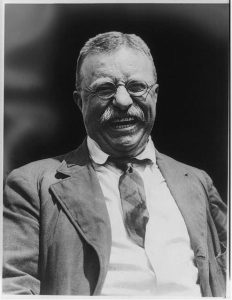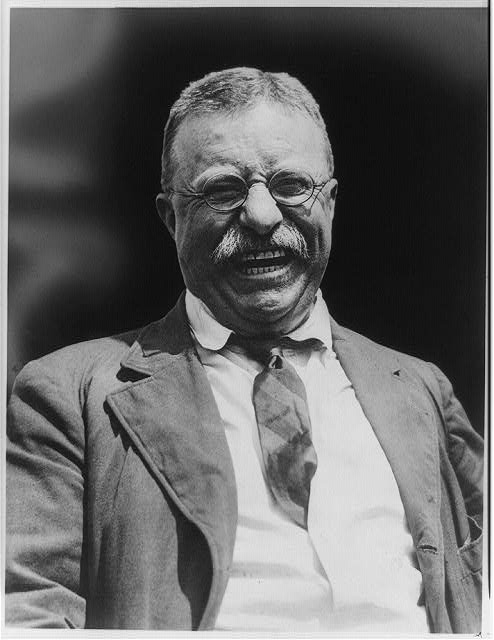
Have you heard the one about the Sultana disaster?
From the unexpected to the ridiculous, there is a lot to find funny in history. Like the Emu War, for example. But history has its dark spots too, and often the jokes that emerge from these topics come at someone’s expense.
Having so many fellow History majors as friends, jokes about history frequently flew during dinner and in the residence hall, including some that may have crossed a line. Though none come immediately to mind, I’m sure that I’ve made my own fair share of these questionable jokes. Some favorite topics for these jokes seem to include Andersonville, venereal disease, Sherman’s 1864 campaign, prostitution, and battlefield amputations. You can see the problem of course—there’s not much that’s obviously funny about any of these topics.
Comedy, thriving as it does in the gray areas of social acceptability, frequently tests the limits of what the public can find amusing. In the past few years, comedians have received pushback against jokes that featured rape, violence, and sexuality. These incidents have frequently pitted those who believe in unbridled free speech against those who believe that humor, like any form of speech, can harm others by reinforcing stereotypes or retraumatizing victims by trivializing their experiences.
When it comes to jokes about history, some topics are unquestionably out of bounds. For the most part, mainstream American society seems to have collectively determined that certain topics like the Holocaust and slavery are almost never to be invoked. Others, like the consequences of imperialism and institutionalized racism seem to be fair game. Does it make sense that these jokes fall into two different categories? Both sets of topics involve weighty questions of oppression and victimhood. Perhaps the latter set is more abstract in how we interpret our relationship with the victims. But if we acknowledge that both sets involve jokes about people who have already been victimized beyond our poor power, could it be that rather than refraining from telling jokes about the Holocaust or slavery out of sensitivity to victims and their descendants, we are biting our tongues out of shame for our ancestors’ complicity and indifference toward them?
Maybe jokes about shameful moments in our history are more appropriate when they are told at the expense of the oppressors. This seems to be John Oliver’s approach. Although some of his jokes (“India, or as we once called it, Britain’s Spice Rack”) could certainly be interpreted as making light of colonial attitudes, he delivers them in a tone that highlights that the joke is in the understatement. Britain and its imperial arrogance become his target even though his subject is India. Meanwhile, Trevor Noah frequently acknowledges and chastises his home country of South Africa for its ongoing social and political challenges, but not without throwing shade on Europe for fostering the pre-conditions for unstable and corrupt post-colonial regimes.
They, of course, are comedians. Is there a different standard for historians, and should there be?
I am not arguing that historians ought to begin censoring themselves or should approach their subject matter in a strictly sober manner without sensitivity to the amusing elements of the past. But I wonder how we can do a better job to train ourselves to recognize when and why we are making certain jokes.
Perhaps our attraction to these types of jokes is just a sort of gallows humor. Our work immerses us so deeply in the past that it becomes tempting to find humor even in the grimmest of topics. It’s an understandably human response to the pressures of academe and the emotional baggage of dealing with a serious past. But is it really appropriate to find ourselves chuckling about battlefield casualties or pantomiming a representation of an Andersonville survivor?

The subject matter of these jokes matters, but so does the context. Are we making these jokes in the company of friends who we believe find these jokes as funny as we do? Or do we make them in the presence of those who find themselves to be the butt of the joke? I’m not sure which scenario is worse. In the former, we are invoking our knowledge of the past to connect with others who understand these “inside jokes” while demonstrating our commitment to the cynicism that thrives in academe. This rationale may be even more toxic than making these jokes casually, for our decision not to make these jokes to an inclusive audience suggests that we know we shouldn’t be making them. On the other hand, making them in front of the person at whose expense they come may seem to us to be more playful than duplicitous, but the other party may find that a joke is more hurtful than the joker intends. This is especially true if the jokes persist over time and the aggrieved party comes to find their relationship with the jokers defined by stale attempts at cheap laughs.
There is unquestionably a line when it comes to joking about historical atrocities, as demonstrated by our reluctance to invoke the Holocaust for a cheap laugh. This is right and good. But if the field of history is to be welcoming to all regardless of identity and experiences, we must keep in mind how seemingly harmless jokes can put others in an uncomfortable position and reinforce our own prejudices and misconceptions. These jokes, therefore, have consequences not just for the victim, but also for our own moral character and our scholarly understanding of our subject matter.
This post should not be considered a call to police each other’s humor. But I do consider it worth taking time to reflect on our own philosophy of history and especially where we place limits on how we extract laughs from it.
Where do you set the line?

One reply on “Let’s Get Serious: Making Light of Heavy History”
This is an especially thorny question, thank you for addressing it. I find that historians, like scientists, can sometimes lose themselves in their subject matter which can lead to a loss of both historical and modern context, sometimes with disaterous results.
For me ‘the line’ as you put it is decided on a case be case basis. It’s a fairly well-known ‘rule’ of comedy that you are allowed to joke about things that affect you and I think that it’s a pretty good starting point. I feel that the concept of ‘if you have to ask the answer is no’ can also be applied here; if you’re not sure you should be joking about something, don’t.